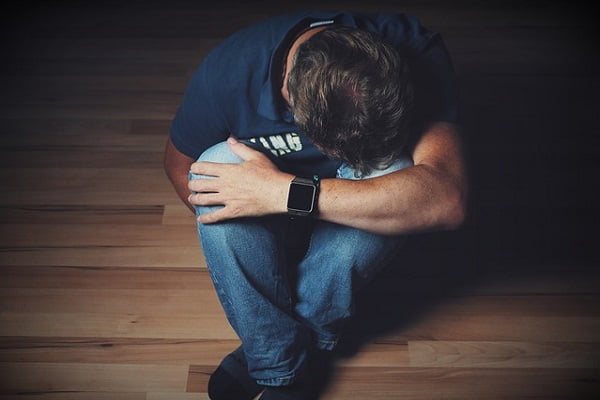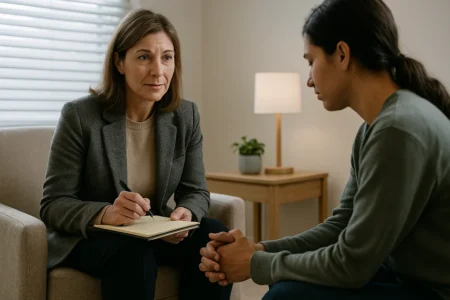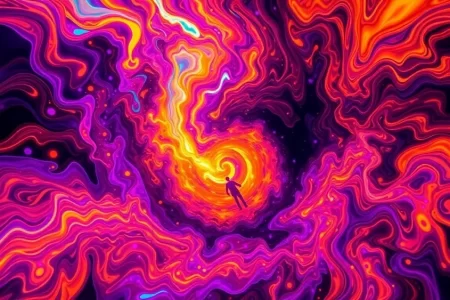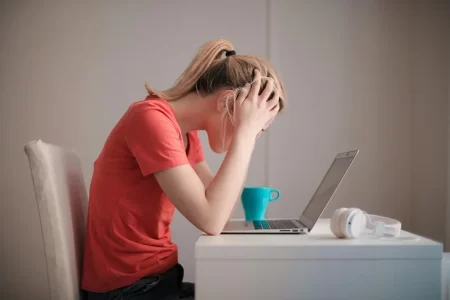What Is Clinical Depression?
- Updated on: Jun 27, 2024
- 6 min Read
- Published on Sep 26, 2019


What is depression? What is clinical depression?
Depression is a serious but common form of mental/mood disorder, marked by continuous feeling of sadness, a loss of interest in activities that you generally enjoy, accompanied by inability to carry out daily activities and concentrate on things, thoughts of self harm and suicide, for at least two weeks.
Depression goes by many names such as clinical depression, major depressive disorder, biological depression and the “blues”.
Depression can happen to anyone at any age. Women are more likely than men to experience depression. It is not a sign of weakness but a real medical condition with real symptoms. Once affected, you can’t escape it just by simply “pulling yourself together”.
Sadness is generally the response to one’s own life’s struggle and setbacks, but depression is different from normal sadness and it negatively affects how you think, feel, and function in daily activities.
It interferes with your ability to work, study, eat, sleep and enjoy life. With depression comes an unrelenting feeling of hopelessness, helplessness, and worthlessness with little relief, ranging from few weeks to months and years. It can lead to variety of physical and emotional complications.
Fortunately, depression can be treated with right medication, psychotherapy or both. Individuals suffering from it can make a full recovery in around six months to a year or more, if it gets diagnosed and treated properly.
What are the types of depression?
There are various types of depressive disorders or medical condition where depression manifests itself as one of the symptoms. Although there are many similarities among them, but each type of depression have their own sets of sign and symptom. These include:
Postnatal depression:
This type of depression is experienced by some women after giving birth and it is treated in similar manner to other depression by taking antidepressant medication and therapies.
Persistence depressive disorder:
Also known as dysthymia, is a state of depressed mood for at least two years. You may have brief period or normal mood as well. Some people experience major depressive disorder on top of dysthemia, a condition known as double depression. The symptoms of this type are not as severe as major depressive episodes, but last for longer duration.
Seasonal affective disorder (SAD):
Sometimes, it is also referred as winter depression. It is a type of depression with a seasonal pattern and usually experienced during winter. It is typically accompanied by social withdrawal, increased sleep and weight gain.
Bipolar disorder:
Though it is not directly linked with depression, but in bipolar disorder an individual experiences spells of both depression and high mood (mania). The symptoms of depression experienced in bipolar disorder are similar to those of clinical depression.
Premenstrual dysphoric disorder:
This kind of depression is sometime thought to be an extension of premenstrual syndrome (PMS). The mood changes in premenstrual dysphoric disorder are much more severe than PMS. It is characterized by symptoms such as sadness, hopelessness, tension, anger and extreme moodiness.
What are the symptoms of depression? What is it like to be depressed?
Depression symptoms can vary from mild to severe. Some of these symptoms are experienced most of the day and every day, for at least two weeks, if it’s the case, you may be suffering from depression.
- Feeling sad or having a depressed mood
- Loss of interest and pleasure in hobbies and activities once enjoyed
- Decreased energy or fatigue
- Talking or moving more slowly
- Difficulty in concentrating, remembering or making decisions
- Changes in appetite – weight loss or gain
- Feeling worthless or guilt ridden
- Thoughts of death, suicide and self harm
- Irritability
- Feeling hopeless and helpless
- Loss of self-esteem and self-confidence
- Feeling restless or having trouble sitting still
- Difficulty in sleeping or over sleeping
- Unexplained aches and pains
- Low sex drive
- Changes to your menstrual cycle
- Avoiding social interactions
- Not doing well at work
What are the causes of depression? What are triggers of depression?
There is no single cause of depression. Clinical depression is caused by a combination of biological, psychological and social factors. Any of these factors can trigger episodes of depression. Some of them are:
- Stressful life events such as bereavement, life-threatening illness, divorce
- Job and money worries
- Personality
- Early life experiences
- Family history
- Giving birth
- Loneliness
- Alcohol and drugs
- Biological changes
- Brain chemistry
- Hormones
- Inherited traits
What are the risk factors for depression?
Depression can happen to anyone at any age – even to a person who appears to live in ideal circumstance.
Various factors which can play a role in development of depression are the following:
- Loneliness and isolation or lack of social support may trigger major depression.
- Imbalance in certain chemicals in brain may contribute to symptoms of depression.
- Genetics of a person can also be a risk factor for depression.
- People who have low self-esteem or self critics are at greater risk of having depression.
- Exposure to violence, abuse, neglect or poverty may play vital role in development of depression.
- Other mental disorders such as anxiety or post traumatic stress disorder may trigger depression.
- Serious, chronic and life threatening illness such as stroke, cancer and heart diseases may act as triggering factor of depression.
- Abuse with alcohol and other recreational drugs.
- Medications such as sleeping pills or high blood pressure medications also make an individual vulnerable to depression.
How is depression diagnosed (Depression Tests)?
There are no physical tests for depression. Sometimes, your doctor may examine you and recommend some urine or blood test to rule out any underlying cause which may have similar symptoms such as an underactive thyroid.
Your doctor may ask about the symptoms, feelings, thoughts for psychiatric evaluation. Generally, it is done by filling a questionnaire provided by your doctor.
Your doctor may use the criteria for depression listed in the Diagnostic and Statistical Manual of Mental Disorders (DSM-5), published by the American Psychiatric Association to determine severity of your depression.
What are the treatment options for depression?
Depression can be fully treated but it needs time and patience. For most of the people with depression, medication and psychotherapy are effective to relieve the symptoms. However, some people with depression may get benefitted by visiting a psychiatrist, psychologist and other mental healthcare professionals.
Medications:
Antidepressants are the medicines used for the treatment of depression. Each comes with their own possible side effects. Be sure to discuss these side effects with your doctor and pharmacist. Different kinds of anti-depressants available include:
- Selective serotonin reuptake inhibitors (SSRIs)
- Serotonin-norepinephrine reuptake inhibitors (SNRIs)
- Tricyclic antidepressants
- Atypical antidepressants
- Monamine oxidase inhibitors (MAOs)
Antidepressants usually take 2 to 4 weeks to work. If you are taking these medications, do not stop taking them abruptly as it may start showing withdrawal symptoms. Stop them in consultation of your doctor only.
Psychotherapy:
It can be defined as “psychological treatment through the establishment of a relationship between the therapist and patient for the purpose of relieving symptoms and correcting unhealthy patterns of behaviour.” It is also known as talk therapy or psychological therapy also.
A trained and experienced therapist can provide a trusted platform for a depressed person to work through his issues by formal psychotherapy. The depressed person is helped while talking with a therapist, instead of relying solely on medication.
There is a variety of psychotherapies which can be used according to an individual’s needs. Some of them are:
- Cognitive-behavioral therapy (CBT)
- Interpersonal therapy (IPT)
- Problem solving therapy
- Counselling
Other treatment options:
If the symptoms of depression are chronic and severe and are not responding to the above two strategies, another therapy known as brain stimulating therapy is recommended for some depressed persons. It includes:
Electroconvulsive therapy (ECT):
This therapy is usually used for patients who are at greater risk of suicide or cannot take antidepressants for its side effects or other health reasons.
In an ECT, electrical current is passed through your brain to alter the function and effect of neurotransmitters to relieve depression.
Transcranial magnetic stimulation (TMS):
It may be an option for patients who are not responding to medication. During TMS, a treatment coil is placed against your scalp which sends brief magnetic pulses to stimulate the nerve cells in your brain that are involved in mood regulation and depression.
How can depression be prevented? How to cope with depression?
Depression cannot be prevented by any physical means. However, these strategies may help in coping depression:
- Try to do regular exercise and be active
- Try methods and activities which can reduce your stress
- Set realistic goals for yourself
- Get enough quality sleep on regular basis
- Eat healthy diets and avoid alcohol and other drugs
- Talk to family and friends during time of stress
- Try not to isolate yourself
What are the complications of depression?
Depression is a serious disorder which can severely affect your daily life. It gets worse if left untreated, resulting in physical, emotional and behavioral problems.
Some of the complications associated with depression may include:
- Alcohol and drug misuse
- Unexplained pain and physical illness
- Weight gain leading to diabetes and heart disease
- Social isolation and social phobia
- Problem with family and relationships
- Work related problems
- Self harm and suicide attempts
- Premature death from medical conditions












